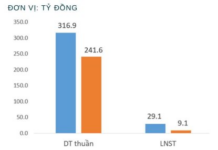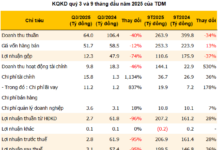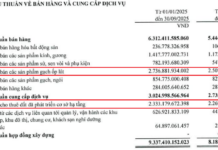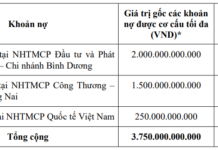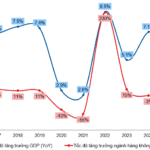The percentage of trained workers with certificates and degrees is currently very low. By the end of 2023, the percentage of trained workers is expected to reach 68%, with 27-27.5% of them having certificates and degrees, according to a report by the Ministry of Labor – Invalids and Social Affairs.
INCREASING “HOT” INDUSTRY TARGETS
This does not meet the demands of the labor market, especially the need for skilled labor in emerging industries. Therefore, focusing on higher quality and selective training, especially in emerging trades, is a trend that training institutions are concerned about.
In Hanoi, according to the admissions announcement for 2024 from some vocational colleges in the area, the overall targets for this year have not changed much. The main increase is in the “hot” industry groups, to focus on ensuring the best quality vocational training.
According to Do Van Truong, Vice Rector of the Hanoi Vocational College of Technology, in 2024, the college plans to admit more students in the following trades: Automotive Technology, Electro-Mechanical, Electrical Industry, Information Technology (Graphic Design, Computer Programming).
According to Truong, the structure of the basic trades has not changed, but due to economic conditions and the emergence of new jobs, some specialized fields have undergone slight changes in training.
For example, in 2023, due to a low number of applicants for the Electrical Installation and Control in Industry trade, the college switched to a new trade, Automation; or switched from Metal Cutting to Machine Manufacturing Technology to meet social needs. The result was an increase in the number of applicants for these new trades.
Meanwhile, Nguyen Tien Dung, Vice Rector of the Vietnam – Korea Vocational College in Hanoi, stated that the college plans to increase admissions targets in certain trades such as Automotive Technology, Electrical Industry, Industrial Electronics, Refrigeration and Air-Conditioning Engineering, Computer Graphics and Design, Computer Assembly and Repair…
According to the representative of the college, these trades are highly suitable for the current economic and technical development, as well as meeting the recruitment needs of businesses.
Focusing on Quality, Not Mass Training
Along with many trades that are in need of skilled labor, fields that meet the requirements of digital transformation or emerging fields have also been updated for immediate training, such as information technology, semiconductor chips…
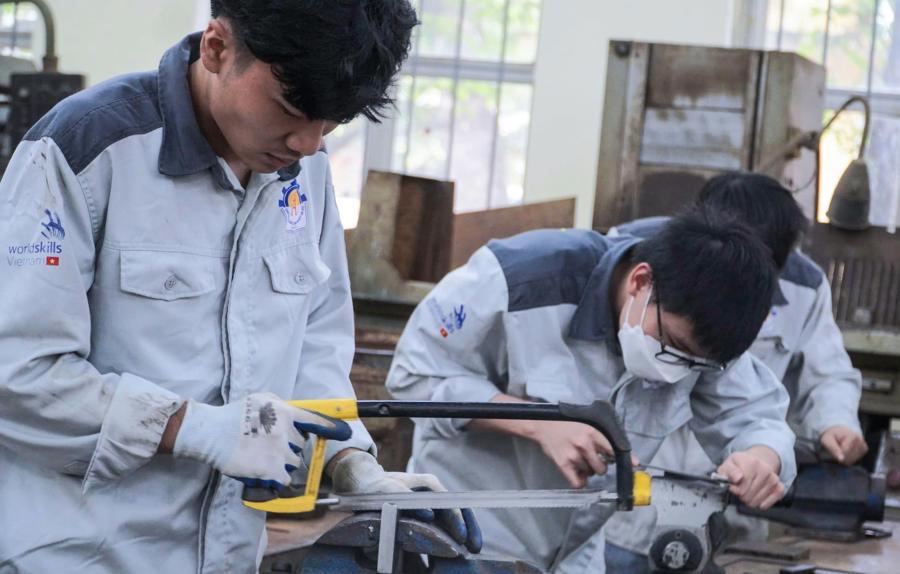
In an exchange with VnEconomy, Ho Thi Thu Huyen, Head of Admissions at FPT Aptech – FPT Jetking, said that they noticed the trend that young people are interested in software programming and information technology, so the institution is focusing on training in software programming.
The training program at FPT Aptech – FPT Jetking is a 2-year program. During this time, students will have the opportunity to collaborate with many businesses through visits, internships, and the businesses will also participate in evaluating the students’ projects during the defense sessions.
In addition, during the learning process, if students have the capability and want to work, the institution has a job introduction department to support students in sending their CVs to businesses for job applications.
“At FPT Aptech – FPT Jetking, about 50% of students both study and work at the same time, meaning that during their studies, they have been taught a lot of practical knowledge. Students who have completed 1 year of study can start working, with an internship salary of 8-10 million VND, which is quite satisfactory,” said Huyen.
Besides, to catch up with the trend, in 2024, the institution plans to open a new major in semiconductor chips. Huyen believes that in the long run, with the trend of semiconductor chips and the investment by many foreign companies in building chip factories in Vietnam, the demand for training in this field will not stop.
Simultaneously, the training program will be constantly updated to keep up with trends and new programming languages. This will help students adapt to the market’s needs when they start working after graduation.
In addition to FPT’s ecosystem, students can also choose to work at other technology companies in Vietnam that match their skills, salary expectations, and desired working environments.
To meet the needs of labor in new fields and emerging industries, the Ministry of Labor – Invalids and Social Affairs has recently directed vocational education institutions to assess the current situation and capabilities of organizing training in new trades and fields, including semiconductor chips, artificial intelligence, energy conversion, logistics…
In the coming time, these institutions are required to strengthen enrollment and training, enhance skills and qualifications for workers in new trades and skills to meet the demand for skilled labor for economic recovery and development, according to Dao Trong Do, Head of the Vocational Education Department at the General Department of Vocational Education (Ministry of Labor – Invalids and Social Affairs).
Based on the reports from the schools, regarding their training capabilities, policy constraints, resources…, a comprehensive and accurate database will be established. Afterward, there will be support plans for the schools to carry out training. It is expected that a consolidated report from schools across the country will be available in March 2024.












